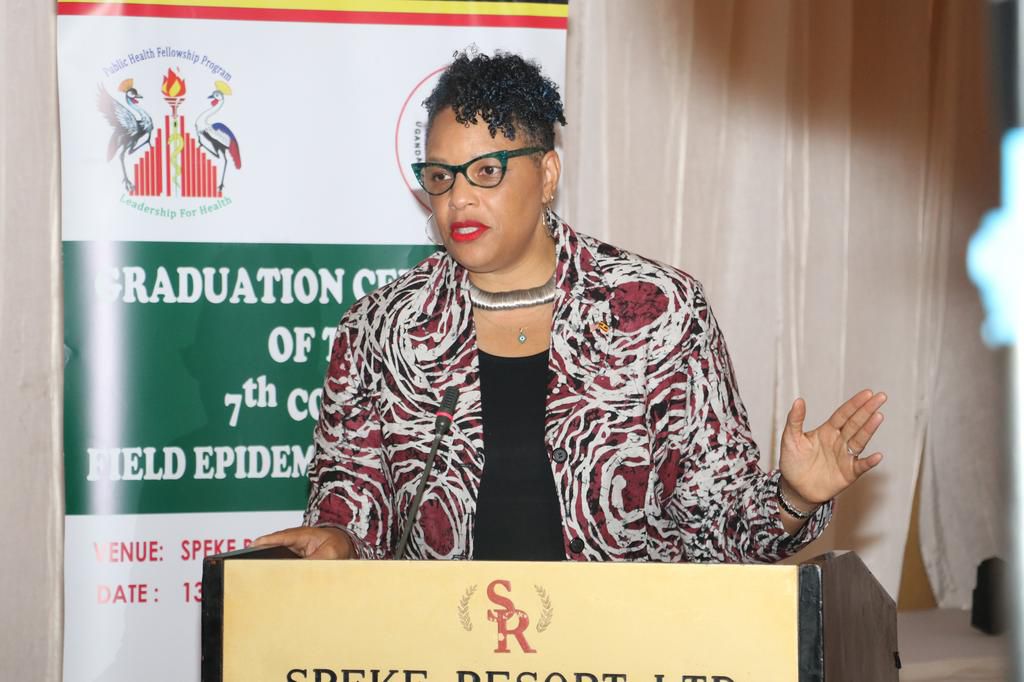The seventh cohort for the field epidemiology track fellows who graduated yesterday at Speke Resort Munyonyo during an event organised by the Uganda Public Health Fellowship Program shared their key findings during their training in areas such as the effects of COVID-19, Ebola, establishing sentinel surveillance for Black Water Fever, risk factors associated with deaths among hospitalised pregnant women among others.
Julie Harris, the resident advisor to the field epidemiology training program in Uganda, said the program is meant to boost the fight against epidemics in Uganda by training participants in areas such as data analysis, making follow up on cases and scientific writing among others.
“It is important to have people who are well trained in epidemiology. Such people are key in fighting epidemics such as Ebola. The Ebola outbreak has shown how important epidemiologists are,” she said.
She added: “The participants were trained in areas such as data analysis, scientific writing, preventing and detecting disease outbreaks.”
Harris said the program will be training 14 health personnel annually.
The United States Ambassador, Natalie Brown, commended the Ministry of Health for “enabling the program to flourish.”
“I am appreciative of the strong support from the Ugandan Ministry of Health, which has enabled this important program to flourish. Please join me in thanking the hardworking PHFP staff for their tireless efforts in building and supporting this program. You have made PHFP the critical partner in Uganda’s public health system that it is today,” she said.
Natalie urged the graduates to build on their experiences to carry on the mantle of preventing disease outbreaks.

“I urge the fellows to build on these experiences to carry on the mantle of preventing, detecting, and responding to disease outbreaks and improving public health. I hope we can deploy many of you not only here in Uganda but also to other countries affected by outbreaks,” she said.
The World Health Organisation (WHO) representative to Uganda, Dr. Yonas Tegegn, urged the graduates to continue learning and take their job seriously.
“I urge you graduates to continue learning. The field you have received training in a very dynamic one. Things keep on changing year in and out,” he said.
The WHO representative also said the Ebola outbreak proved that field epidemiology is key in fighting epidemics and called for more training of epidemiologists.
“The outbreak of Ebola has proved to the world epidemiology is key in fighting pandemics. By fighting Ebola, Uganda has been able to contribute to global health by coming up with knowledgeable ways on how to fight the disease,” he said.
Tegegn pointed out some of the challenges faced by Uganda when it comes to fighting against pandemics such as Ebola.
These, he said, include: Shortage of dedicated epidemiologists and low funding of human resources training of health personnel.
This Uganda Public Health Fellowship Program is a tripartite of the Public Health Workforce Capacity Building program of the Ministry of Health, Makerere University School of Public Health and the US Centers for Disease Control and Prevention.
)
)
)
)
)
)
)